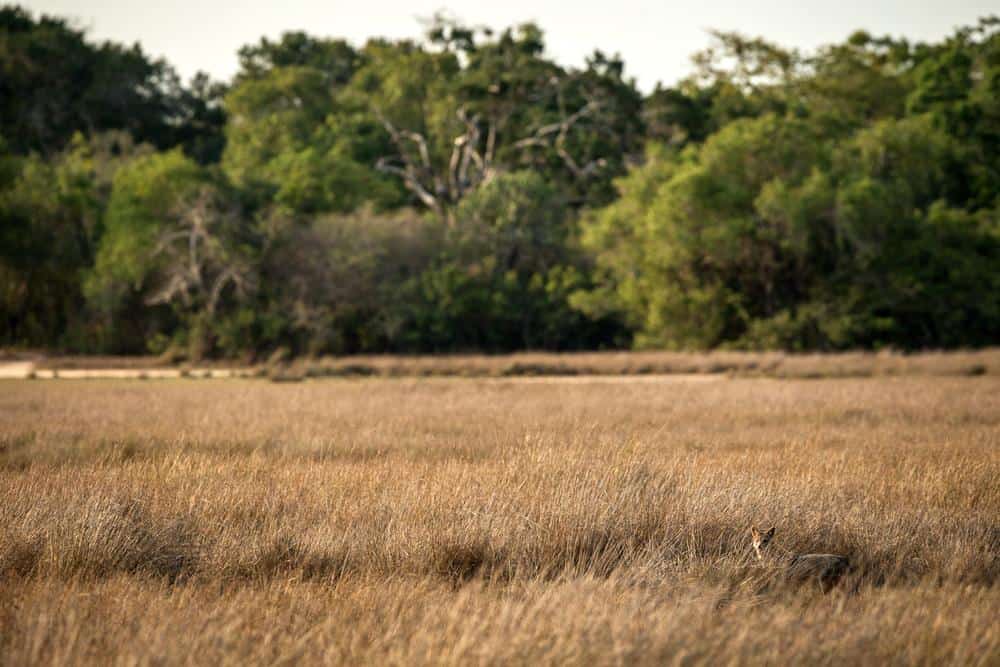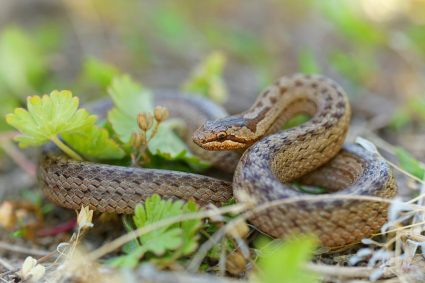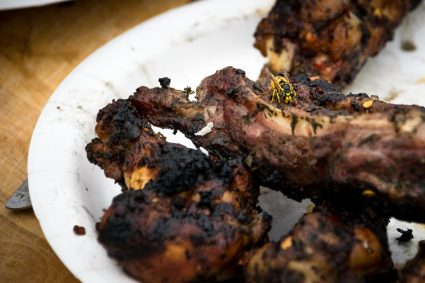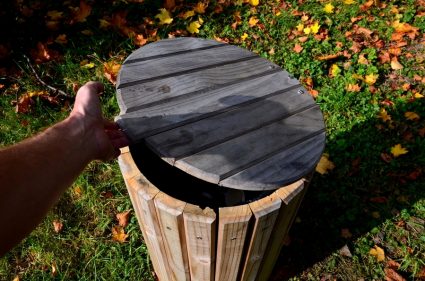
Living in harmony with nature often means dealing with the occasional wildlife in your backyard. One such creature that homeowners often encounter is the skunk. As cute as they may appear, skunks can cause significant problems, especially if they start digging under your house. This comprehensive guide will help you understand why skunks might be attracted to your home, how to identify their presence, and most importantly, how to keep skunks from digging under your house.
To keep skunks from digging under your house, eliminate their food sources by securing trash and removing pet food. Modify their habitat by sealing potential entries and removing brush piles. Use repellents such as commercial skunk repellents or citrus peels. Install motion-activated lights and sprinklers to deter skunks, and consider fencing around your house. If the infestation is severe, hire a professional wildlife removal service. Always use humane methods and check local laws regarding skunk removal.
What Attracts Skunks to a Residential Area?
Skunks are attracted to residential areas due to the availability of food, water, and shelter. They are often drawn to lawns and gardens where they can find grubs, larvae, and other insects to eat. Accessible decks, patios, and crawl spaces can provide shelter for skunks to build their dens, hide from predators, and reproduce.
Signs That Skunks Are Living Under Your House
Identifying a skunk presence early on can save you from potential damage. Look out for these signs:
- Faint bad odors: Skunks are known for their strong, unpleasant smell, which can be detected if they are living under a house.
- Holes and shallow burrows in the yard: Skunks dig perfectly circular holes in search of food.
- Tracks: Skunk tracks can be found around the house if they are living underneath it.
- Damage to lawns and gardens: Skunks dig up lawns and gardens in search of food.
- Torn or damaged vent screens: Skunks may damage vent screens to access the space beneath the house.
How to Deter Skunks from Digging Under Your House
If you’ve identified skunks living under your house or want to prevent them from doing so, here are some effective methods you can employ:
- Habitat Modification: Remove brush piles, seal holes and potential entries with gravel, fencing, or plywood.
- Eliminate Food Sources: Secure trash, remove pet food, and keep your yard free of bird seed and grubs.
- Install Motion-Activated Lights: Skunks are nocturnal and tend to avoid bright lights.
- Use Repellents: Apply commercial skunk repellents, ammonia-soaked rags, or mothballs around the perimeter of your yard.
- Citrus Peels: Scatter lemon or orange peels under your deck or porch, as citrus is a natural repellent for skunks.
- Install Fencing: Use chicken wire or hardware cloth to create a barrier around your house, deck, or shed, making sure it extends at least 12 inches into the ground.
- Motion-Activated Sprinklers: Set up sprinklers that activate when they detect movement to scare skunks away.
Professional Skunk Removal Services
If you’re uncomfortable dealing with skunks yourself or if the infestation is severe, consider hiring a professional wildlife removal service. Companies like Virginia Professional Wildlife Removal Services, Desert Squad Pest & Wildlife, Critter Control, and Trutech Wildlife Service specialize in humane skunk removal and prevention strategies.
Legalities Around Skunk Removal
Ensure that you’re handling skunk removal legally and ethically. The laws around skunk removal vary by location, so it’s best to check local and state laws and regulations. Always use humane methods for skunk removal, such as live trapping. Avoid relocating trapped skunks unless it’s allowed by local laws.
Preventing Future Skunk Infestations
To safeguard your home from future skunk invasions, eliminate food sources, remove potential den sites, use repellents, install motion-activated lights and sprinklers, seal off small areas, maintain a clear perimeter around your home, and use humane eviction methods.
Remember, patience is key when dealing with skunks, especially if there’s a possibility of a mother with babies living under your house. Always opt for humane methods, and if in doubt, don’t hesitate to hire a professional wildlife removal service. By following these steps, you can effectively safeguard your home from skunks and enjoy a peaceful co-existence with nature.
Frequently Asked Questions
What kind of food do skunks eat?
Skunks are omnivores and their diet primarily includes grubs, insects, larvae, berries, roots, leaves, grasses, fungi, and nuts. They may also be attracted to human and pet food if left outdoors.
Are skunks dangerous to humans and pets?
Skunks are generally not dangerous unless provoked. However, they can carry diseases like rabies, which can be harmful to humans and pets. Additionally, their spray can cause temporary blindness and discomfort.
How long do skunks live?
In the wild, skunks typically live for about 2-4 years. However, they can live up to 10 years in captivity.
What time of the year are skunks most active?
Skunks are most active during the warmer months of spring and summer. They are nocturnal creatures and are most active during the night.
How long does skunk smell last?
Skunk smell can last for days to weeks, depending on the conditions. The smell is most potent when fresh and can linger on clothes, fur, or objects that have come in contact with the spray.











